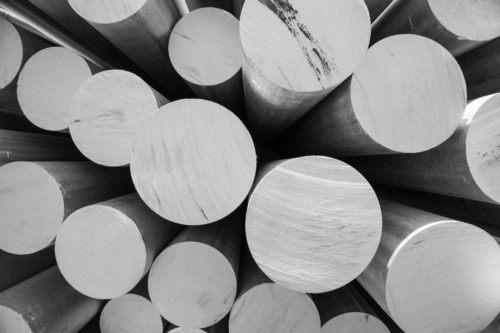The Of Alcast Company
Table of ContentsAlcast Company - QuestionsThe Ultimate Guide To Alcast CompanyThe Basic Principles Of Alcast Company Get This Report about Alcast CompanyThe Single Strategy To Use For Alcast CompanyGetting My Alcast Company To Work
Chemical Contrast of Cast Light weight aluminum Alloys Silicon promotes castability by decreasing the alloy's melting temperature and improving fluidness throughout spreading. Furthermore, silicon contributes to the alloy's stamina and put on resistance, making it useful in applications where durability is crucial, such as vehicle components and engine elements.It likewise boosts the machinability of the alloy, making it simpler to refine right into finished items. This way, iron adds to the general workability of light weight aluminum alloys. Copper enhances electric conductivity, making it helpful in electrical applications. It likewise improves corrosion resistance and adds to the alloy's overall toughness.
Manganese adds to the stamina of light weight aluminum alloys and enhances workability (Aluminum Castings). It is typically made use of in wrought light weight aluminum products like sheets, extrusions, and profiles. The visibility of manganese aids in the alloy's formability and resistance to fracturing during manufacture processes. Magnesium is a light-weight element that supplies strength and effect resistance to light weight aluminum alloys.
Alcast Company for Beginners
It enables the manufacturing of light-weight parts with excellent mechanical homes. Zinc boosts the castability of light weight aluminum alloys and helps manage the solidification procedure throughout spreading. It boosts the alloy's strength and firmness. It is often located in applications where complex forms and great details are essential, such as ornamental spreadings and particular automotive parts.

The key thermal conductivity, tensile toughness, return stamina, and prolongation vary. Amongst the above alloys, A356 has the highest possible thermal conductivity, and A380 and ADC12 have the lowest.
The Alcast Company Diaries

In precision spreading, 6063 is appropriate for applications where complex geometries and top quality surface finishes are paramount. Examples consist of telecommunication enclosures, where the alloy's superior formability enables sleek and visually pleasing layouts while preserving structural integrity. Similarly, in the Lights Solutions sector, precision-cast 6063 parts develop sophisticated and reliable illumination components that need detailed shapes and great thermal performance.
It causes a finer surface coating and much better rust resistance in A360. Furthermore, the A360 exhibits exceptional elongation, making it excellent for facility and thin-walled elements. In precision spreading applications, A360 is well-suited for industries such as Customer Electronics, Telecommunication, and Power Tools. Its boosted fluidness enables detailed, high-precision elements like smartphone cases and communication tool housings.
What Does Alcast Company Do?
Its special buildings make A360 a beneficial option for precision spreading in these sectors, improving item longevity and high quality. Aluminum Casting. Aluminum alloy 380, or A380, is an extensively used spreading alloy with several unique attributes.
In precision casting, light weight aluminum 413 shines in the Consumer Electronic Devices and Power Devices industries. This alloy's remarkable corrosion resistance makes it an excellent selection for exterior applications, ensuring durable, resilient products in the discussed markets.
The Facts About Alcast Company Uncovered
As soon as you have actually determined that the light weight aluminum pass away casting procedure appropriates for your task, an essential following action is choosing on the most suitable alloy. The aluminum alloy you pick will considerably influence both the spreading process and the residential or commercial properties of the final product. Due to this, you need to make your decision very carefully and take an educated strategy.
Figuring out the most appropriate aluminum alloy for your application will certainly imply weighing a wide range of features. These comparative alloy qualities adhere to the North American Pass Away Spreading Association's guidelines, and we have actually divided them right into two groups. The very first category addresses alloy features that influence the production procedure. The 2nd covers characteristics impacting the properties of the end product.
8 Easy Facts About Alcast Company Explained
The alloy you select for die casting directly influences a number of elements of the casting procedure, like exactly how very easy the alloy is to work with and if it is vulnerable to casting flaws. Hot breaking, additionally referred to as solidification fracturing, is a typical die casting problem for light weight aluminum alloys that can lead to interior or surface-level splits or fractures.
Specific aluminum alloys are more susceptible to hot breaking than others, and your choice must consider this. Another typical problem found in the die casting of aluminum is die soldering, which is when the cast sticks to the die walls and makes ejection tough. It can damage both the cast and the die, so you should look for alloys with high anti-soldering homes.
Rust resistance, which is already a noteworthy characteristic of aluminum, can vary considerably from alloy to alloy and is an important characteristic to think about depending upon the ecological conditions your item will be exposed to (Casting Foundry). Wear resistance is one more home frequently looked for in light weight aluminum products and can differentiate some alloys